Terrorism in Jerusalem
Incitement of hatred of Israel in general, and of its Jewish population in particular, is the apparent cause of the disturbing increase in terror activities involving Arab residents of East Jerusalem
Aftermath of March 6 terror attack at the Mercaz HaRav yeshiva

Recently, Jerusalem has been the victim of a spate of terror attacks. In recent months, there have been five such attacks, starting with the January 24th fatal shooting of a border guard at a checkpoint at the northern entrance to Shuafat, north of Jerusalem. This was followed by the March 6th shooting of eight young yeshiva (seminary) students at Mercaz HaRav; followed by the July 2nd bulldozer rampage on Jaffa Road which killed three Israeli civilians and wounded dozens more; the July 11th shooting at the Old City's Lion Gate which left one border guard officer dead and another moderately injured; and the second bulldozer attack on July 22nd which wounded dozens. Most of these attacks were carried out by lone terrorists, residents of eastern Jerusalem.
The involvement of residents of eastern Jerusalem in terrorism is not a new phenomenon, but this recent wave of attacks - which Hamas has hailed as the "Jerusalem Intifada" - is a worrying trend. This is especially disturbing, as some 290,000 Palestinian holders of Israeli ID cards reside in the greater Jerusalem area, and the number of East Jerusalem residents involved in terror activities increased significantly during 2006; 9 arrests in 2005 as opposed 61 arrests in 2006, an increase of 670%.
From 2001 to the end of 2007, a total of 270 East Jerusalem residents involved in terror activities were detained by security forces. In the first half of 2008 (1 January until 30 June), 71 East Jerusalem terror activists were detained, raising the total from January 2001 to 341. An additional five attacks s took place in July. While not all of the terrorists in these attacks were apprehended, it is clear that most of the perpetrators were from East Jerusalem.
In addition, a six-man al-Qaeda cell was discovered operating out of Jerusalem. During June and July 2008, the Israel Security Agency and the Israel Police uncovered a 6-member group of Israeli Arabs and residents of East Jerusalem who were planning to establish an Al-Qaeda terrorist cell in Israel. The terror activists, some of whom were students at the Hebrew University of Jerusalem, were all members of a closed religious group who would meet and plan their activities at the Al-Aqsa mosque in Jerusalem.
One of the detainees, who resided in a dormitory at the Hebrew University overlooking the helicopter landing pad used by President Bush on his visit in January 2008, used his cell phone to make videos of helicopter take-offs and landings and then posted queries on al-Qaeda related websites asking for information on how to shoot down the President's helicopter. Additionally, instructions for preparing bombs were found on personal computers belonging to some of the detainees.
The exposure of this group is one of a series of recently uncovered incidents involving Israeli Arabs who support extreme Islamic ideologies and intended to carry out hostile terrorist activities inside Israel.
This is a trend that is difficult for many to understand, given the rights and privileges enjoyed by the residents of eastern Jerusalem.
Immediately following Israel's reunification of Jerusalem in 1967, Jerusalem's Arab residents were offered full Israeli citizenship, (although most declined to accept it). Even without full citizenship, residents of eastern Jerusalem are free to visit and work in all parts of Israel, as they are considered permanent residents. Moreover, they retain the right, as residents of the city, to participate in municipal elections and are afforded all the economic, cultural and social benefits given to Israeli citizens, such as membership in Israeli health funds (comprehensive medical insurance) and social security payments. Additionally, they have the civil right to maintain their own educational, humanitarian and social institutions.
Their religious rights are also vigorously protected. As Prime Minister Ehud Olmert said in his speech on Jerusalem Day (June 2, 2008): "We respect all believers, preserve their holy places and are wholly committed to freedom of religion, religious worship and conscience for all residents, visitors and lovers of Jerusalem." Indeed, at no other time in history have the worshippers of all faiths enjoyed such a high degree of religious freedom in Jerusalem.
While the individual motivations of each terrorist remain uncertain, one fact is crystal clear – each has been exposed to incitement against Israel. This incitement to hatred of Israel in general, and its Jewish population in particular, is prevalent in certain media outlets and is widely available over the Internet. The longing to commit terrorist acts stems neither from economic deprivation nor political oppression, but from incitement and hatred.
Fortunately, the anti-terrorism fence and other preventive actions taken by Israel have thwarted almost all of the terror attacks emanating from the West Bank. However, Israel faces a more difficult situation when dealing with terrorists living in Jerusalem given their legal rights to move freely throughout Israel. This situation is made ever more complicated when dealing with suicide terrorists, as normal deterrents such as prison sentences have no effects.
A public debate is currently being held in Israel to find the means to prevent such terrorists from carrying out their barbaric attacks. The dilemma the Israeli authorities face is how to deter suicide terrorists, yet do so in a way that is effective as well as legally and morally responsible. Whatever method is ultimately adopted, it will be one aimed not at collective punishment, but rather at effective deterrence. Only measures which deter terrorists before they act can stop the violence being aimed at the citizens of Jerusalem.
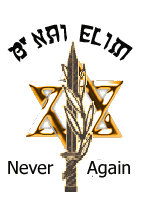














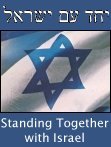

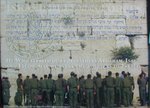

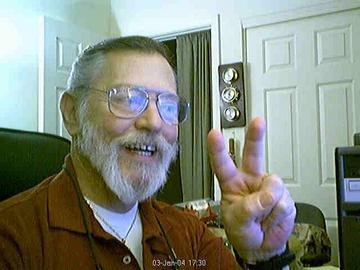












 While doing IDF (Israel Defence Forces) reserve duty on a mountain overlooking the
While doing IDF (Israel Defence Forces) reserve duty on a mountain overlooking the 

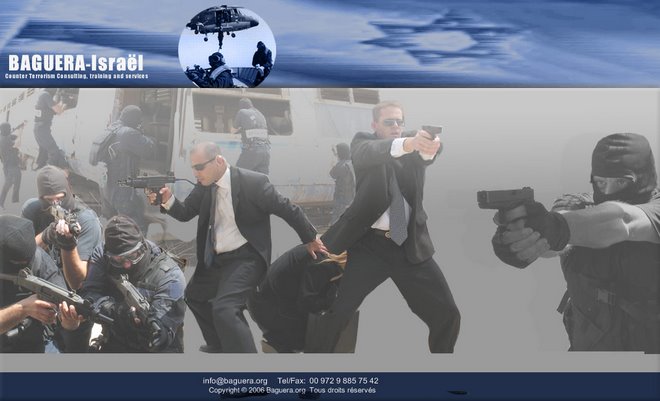



No comments:
Post a Comment